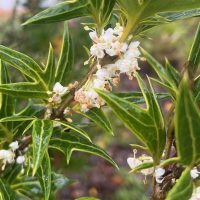October Plant Profile: Decaisnea insignis

At first glance, Decaisnea insignis isn’t a particularly striking shrub; growing between 10-15 feet high, its pinnately compound leaves arch away from the thick, central branches of the plant. It flowers in June, with long strings of dangling greenish flowers that can be hard to notice, blending with the yellows and greens of the rest of the plant.
What does make you look twice at this plant, though, are the fruits that ripen in the fall between September and early November: thick, blueish bean-like pods dangle where the flowers were, giving this plant its common names: Dead Man’s Fingers, or Blue Bean Tree.
August Plant Profile: Quercus graciliformis

One of the many gems in our oak collection is Quercus graciliformis, Slender Oak or Chisos Oak, which is endemic to a very limited area in the Chisos Mountains in western Texas. Read on to learn about how the Washington Park Arboretum participates in tree conservation and research, particularly in the case of oaks, maples, magnolias, and hollies.
Read moreJuly Plant Profile: Juncus effusus ‘Spiralis’
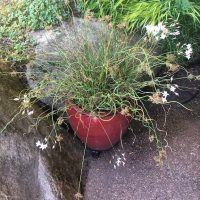
Scientific Name: Juncus effusus ‘Spiralis’
Common Name: Corkscrew rush
Family: Juncaceae
Native Range (of Juncus effusus): Throughout North America, South America, Europe, Africa, and Asia.
The straight species of corkscrew rush, Juncus effusus, has a plethora of common names – including common rush and soft rush – and can be found in temperate climates all over the globe. Juncus is hardy in USDA zones 1-11.
June Plant Profile: Ilex vomitoria
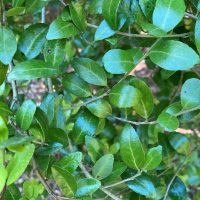
Ilex vomitoria may not be much to look at, but dig just a little deeper to learn its interesting story!
Read moreMay Plant Profile: Fragaria sp
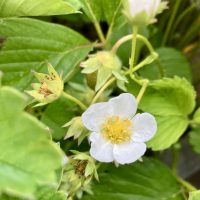
The UW Farm highlights the humble strawberry this month! Managed organically, the campus farm will add a sweet, culturally significant sustainable crop to its curriculum and production.
Read moreMarch Plant Profile: Lysichiton americanus

Skunk cabbage is a sure harbinger of spring in the maritime Northwest. Among the earliest native species to flower, its bright color, large size and local abundance are easy to spot and promise warmer days ahead after the long dark of winter.
Read moreFebruary Plant Profile: Sycopsis sinensis

If you visit the grove of Sycopsis at the Pacific Connections Garden along Arboretum Drive this February you will be in for a treat – the flowers, while not showstoppers individually, are blooming in incredible quantity this winter.
Read moreNovember Plant Profile: Disanthus cercidifolius
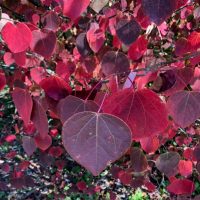
Learn all about Disanthus cercidifolius, the redbud hazel – a show-stopping shrub for shady gardens that we have many examples of at the Washington Park Arboretum and the Center for Urban Horticulture.
Read more
